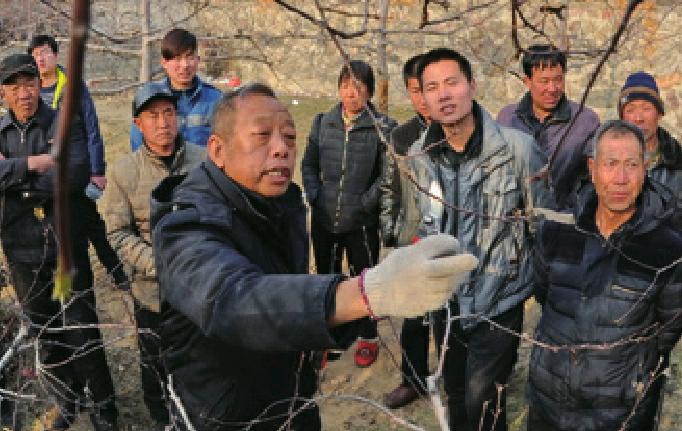Serving the People
2016-07-29ByYinPumin
By+Yin+Pumin
The story of Li Baoguo, a late member of the Communist Party of China(CPC), has recently gained widespread attention. Li, a university professor in north Chinas Hebei Province, moved many people through his relentless efforts to help farmers escape poverty by using his professional knowledge.
On April 10, the 58-year-old died from a heart attack. Before his death, he taught at the Baoding-based Hebei Agricultural University. Each year, he spent more than 200 days in the mountains and fields planting trees and crops. For 35 years, he led local villagers to afforest 93,333 hectares of barren mountains and assisted 100,000 farmers in transforming their livelihoods.
President Xi Jinping, also General Secretary of the CPC Central Committee, called on all CPC members to learn from the deeds of Li.
In late May, the Organization Department of the CPC Central Committee posthumously awarded Li the title of “National Excellent CPC Member.”
For Li, serving the people was always his life credo. Just after his graduation in 1981 from the then Hebei Forestry School, which was later incorporated into Hebei Agricultural University, Li went to the Taihang Mountains to help local farmers tame the barren landscape.
Qiannanyu Village in Xingtai County had a population of 900. But Li was told that more than 100 male villagers were unmarried solely because of poverty. Then, Li vowed to help them rise above impoverishment.
With his knowledge of agriculture and forestry, Li spent his days in the mountains researching the local soil and geomorphology. After years of work, Li discovered how to transform the barren mountains into green, fertile land—by collecting soil to retain water.
The method requires digging ditches 1.5-2 meters wide and 1 meter deep at 4-meter intervals. Then, the ditches are filled with loose soil to retain rain water. The method helps improve the survival rate of trees from 10 to 90 percent.
The technique allowed Li and local villagers to change 93,333 hectares of barren mountains into a sea of trees. The forest coverage rate reached 90.7 percent, and the vegetation coverage reached 94.6 percent.
The afforestation also led to increased incomes for local farmers. From Li, they learned the required skills to cultivate different commercial trees and crops, including apple, walnut and persimmon trees.
Li held more than 800 training sessions for farmers from more than 40 villages, helping them achieve a 3.53-billion-yuan($575.86 million) income increase.
Meanwhile, he also assisted in the building of a 6,600-hectare apple production base, a large-scale walnut processing industrial zone and a modern agricultural technology park.
The results are encouraging, but the process was tough. When Li first tried to introduce jacketing technology to cultivate apples, local villagers refused to accept it because they believed that the jackets would ruin their fruits.
Li decided to present results from his own experiments. Seeing the high-quality apples grown by Li, locals were finally convinced and began to adopt the method.
For villagers to understand, Li conducted training lessons year round. He also wrote simple textbooks for farmers to help lesseducated locals grasp new techniques.
Li understood the limitations of a single man. Therefore, under his proposal, two industrial leagues for walnuts and apples were set up, comprising more than 50 large-scale enterprises. Currently, more than 66,600 hectares of walnuts and 20,000 hectares of apples are managed by the leagues, accounting for 80 percent and 60 percent of their total areas in Hebei, respectively. The leagues have further broadened the road for local farmers to become rich.
